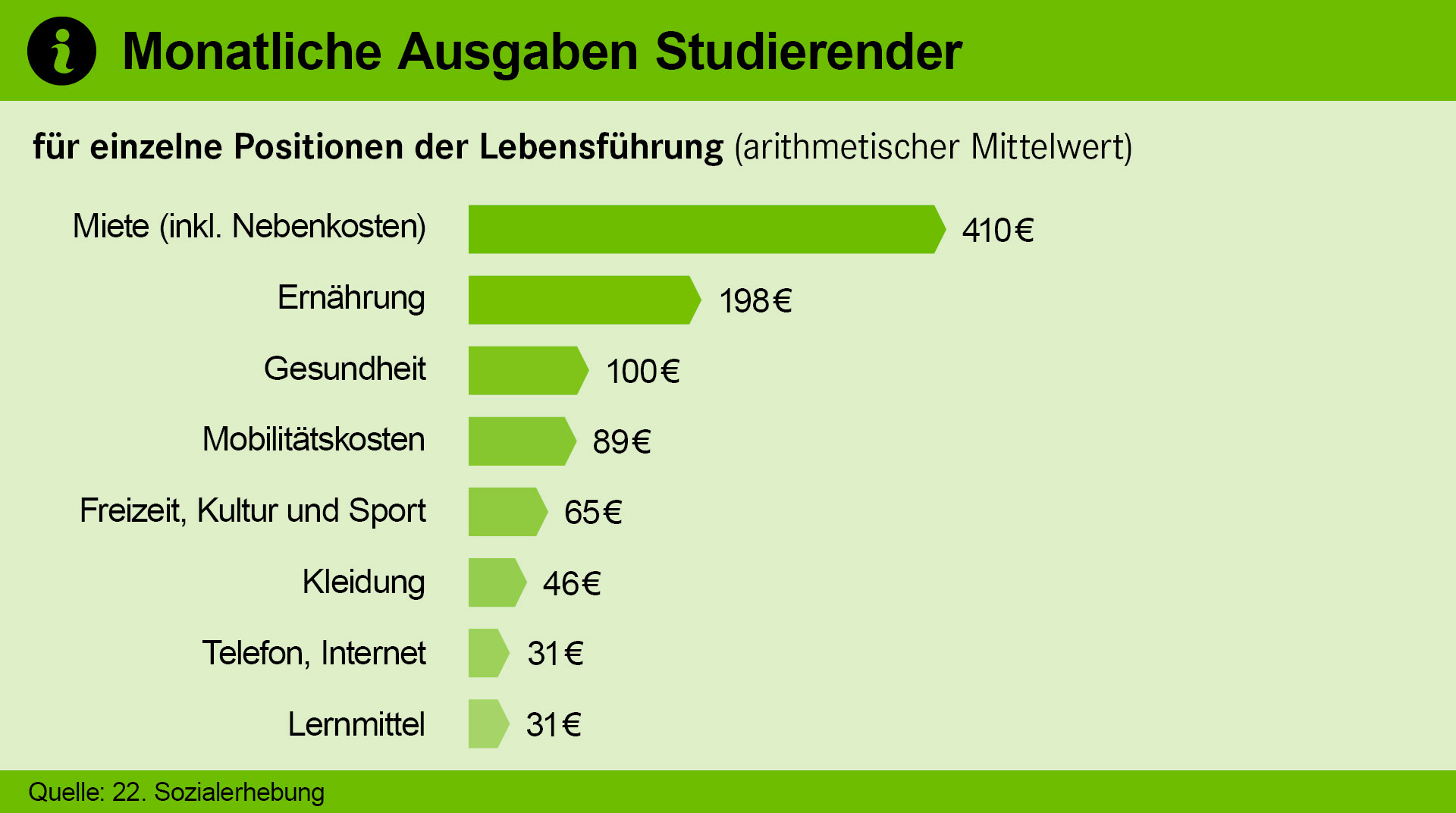In Germany, you do not have to pay tuition fees at state or church universities. However, this does not mean that studying in Germany is free of charge.
Normally, when you enrol or re-register for each new semester, you have to pay social contributions for the services of the student union, the student representation and, if applicable, for a semester ticket for local public transport. In some federal states, there are also administrative costs.
The student survey ‘One for All’ by the German Centre for Higher Education Research and Science Studies (DZHW), the University of Konstanz's Higher Education Research Group and the German Student Union provides information on the financial burden of a typical student.
The latest 22nd Social Survey from 2023 clearly shows that monthly expenditure on rent and ancillary costs is the biggest burden on students' budgets. Including ancillary costs, an average of 410 euros per month was due here in the reference year 2021.
The 22nd Social Survey determined that the average monthly income available to students in 2021 was €1,036, although there is considerable variation in monthly income. Although the vast majority (90%) are financially supported by their parents, over two thirds (68%) of students contribute to the cost of living through their own earnings from gainful employment alongside their studies. Eighteen per cent receive BAföG and five per cent a scholarship.

![[Translate to English:] Bargeld liegt auf einem Tisch.](/fileadmin/_processed_/9/3/csm_Was_kostet_ein_Studium_8befe789ef.jpg)
